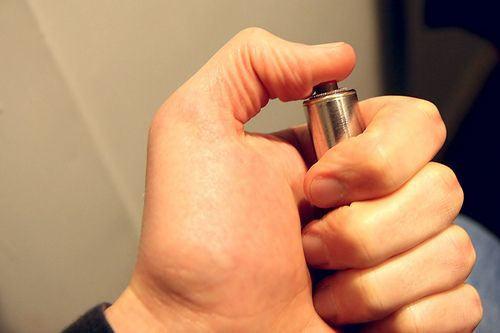School Hearing Tests Don’t Screen For Noise Exposure Hearing Loss, Putting Adolescents At Risk

The world certainly isn’t getting any quieter, and our hearing is paying the price. A new study from Penn State University, however, suggests school hearing tests aren’t doing their part to screen for adolescents’ exposure to loud noises.
Cell phones have already invaded our lives, and now it seems their role is to snipe each daily task one by one. Kids too are getting in on the action as parents begin using music, iPads, and other gaming devices as distraction tools. The noise has never been closer, so should it come as any surprise that noise-related hearing loss has increased in the U.S.?
Hershey High School Hearing Tests
Schools are one of the first lines of defense when it comes to keeping kids’ hearing health in check. While many states screen for low-frequency hearing loss, the higher frequency losses — those typically being the result of exposure to loud noises — receive far less attention, according to assistant professor of pediatrics at PSU and study co-author, Dr. Deepa Sekhar.
In prior research, Sekhar and her colleagues found that school-based hearing screening is required in 34 of the 51 states, and of those 34, only 20 require screening beyond sixth grade — a critical time when high-frequency loss is first becoming a threat.
In their current study, the research team looked at the practices of one high school in Pennsylvania and compared the normal state-required methods to comprehensive high-frequency tests. A total of 282 11th graders participated. "More participants failed the initial screening than we predicted," said Sekhar in a news release. "Even with the effort and care put in by school nurses across the state, the current Pennsylvania school screen just isn't designed to detect high-frequency hearing loss in adolescents."
Of the 282 students, only five failed the test given by the school; however, when Sekhar and her colleagues introduced their test, the number of failures rose to 85. Of those, 48 were brought back by an audiologist for tests in a soundproof booth, and nine were diagnosed with hearing loss.
How To Preserve Your Hearing
Most states screen their students at one, two, and four kilohertz. Sekhar found in her prior research that six states recommend or require testing at six or eight kilohertz, the appropriate threshold for assessing high-frequency hearing loss. While children are less susceptible to high-frequency loss (and more so for low-frequency, as the result of bad colds or infections), kids over the age of 12 face greater risks.
A 2010 study found that between 1988 and 1994, the prevalence of hearing loss among adolescents was 12.1 percent. Between 2005 and 2006, that rate had risen to 16.4 percent, or one in every six kids. Frequency isn’t the only factor. Decibel level and exposure levels also factor into a person losing his or her hearing, making it difficult to assess how and when a person hearing is starting to go.
“In addition, genetics also plays a part,” Sekhar told Medical Daily, “as two individuals exposed to the same hazardous noise will not always have the same degree of hearing damage.”
Because little is known as to the exact cause of adolescent hearing loss, Sekhar cautions parents against lax headphone policies. “Also, parents should talk with their teenager about using hearing protection in places where it is clear there is going to be a lot of noise,” such as concerts, shop class, and lawn mowing.
Ultimately, the onus is on the schools to expand their screening processes. If more schools adopt a broad policy for screening students into their teen years, perhaps the threat of too-loud headphones and noisy environments can be made more visible. Sekhar, for her part, has plans to extend her research to other schools in Pennsylvania.
"The results of this study have the potential to reach schools across the nation, as many use screens similar to those used in Pennsylvania schools," she said. "We are currently working on a follow-up study at Lebanon High School in partnership with Penn State Nursing to further improve the high-frequency school hearing screen for use in the school setting."
Source: Sekhar D, Zalewski T, Ghossaini S, et al. Pilot study of a high-frequency school-based hearing screen to detect adolescent hearing loss. Journal of Medical Screening. 2014.



























